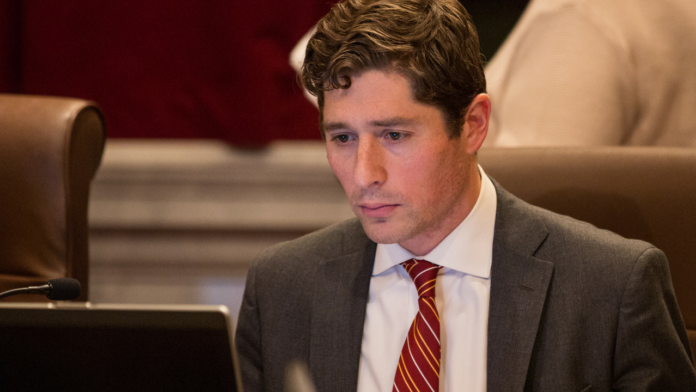MINNEAPOLIS- Mayoral candidate and Minneapolis City Council Member Jacob Frey, released his plan for improving the public safety of Minneapolis on Friday.
Frey introduced his plan by discussing the recent increase in violent crime and the claiming there was a rising distrust between the police and the residents of Minneapolis.
One of the first things Frey discusses is the need for community-based policing, which would include a beat that is known to the community.
“I support assigning officers beats that are narrower and that are consistently at the same time and in the same place. I want residents and local businesses to know, for example, that their police officer on Mondays, Tuesdays, and Wednesdays from 4 to 10 PM is Officer Jill, as well as where to find her and maybe even what her number is,” Frey says in his plan.
Frey was keen to point out that few officers live in Minneapolis and that more living in the city would greatly contribute to community policing.
“One way to do this is by working with area landlords to obtain reasonable rent reductions for tenants who are MPD officers. The landlord benefits because they have an officer on the premises, the officer benefits with a break in rent, and the city benefits because we officers that live in and care about our communities,” Frey said.
Frey believes that youth outreach and improving the opportunities presented to youth would be a major way in which to improve public safety in Minnesota. Frey also proposes staggering the closing times of bars and increasing the number of valet parking options, which would decrease the amount of people out on the streets.
In crime prevention the policy sheet list numerous improvements in terms of equipment and their use. The policy sheet singles out a more judicious usage of body cameras and advocates for a “public-private security camera system” around the city of Minneapolis.
Frey made police interactions with transgender people a major policy issue.
“When interacting with the police transgender people are frequently subjected to misgendering, profiled as sex workers, or otherwise subject to bias,” Frey wrote.

















